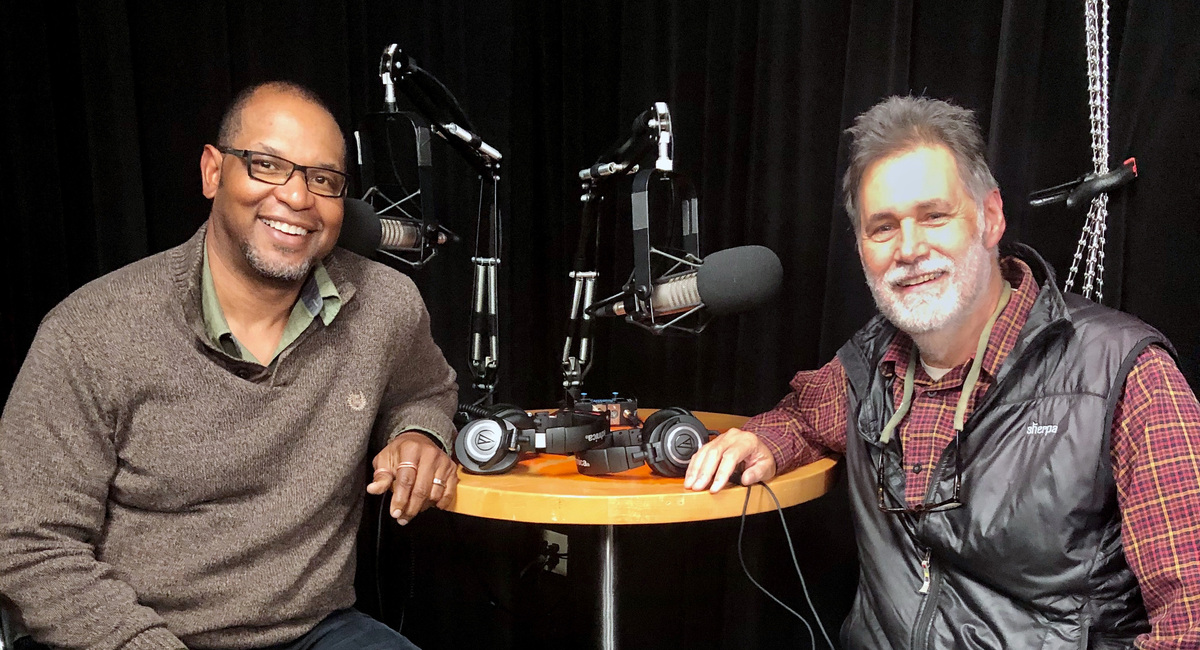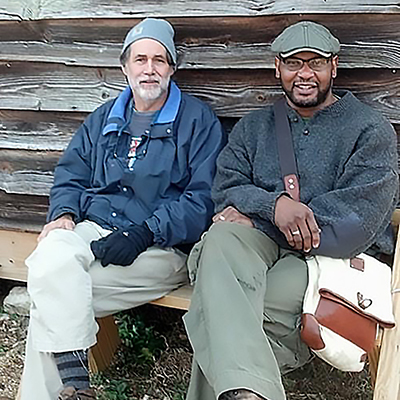apply for the winter 2026 citizens planning academy!
The Citizens Planning Academy is returning early in the new year with a new schedule. Learn more and apply today!

Wounds & Wildness: A conversation with authors John Lane and Drew Lanham
 John Lane (pictured left) is Emeritus Professor of environmental studies at Wofford College and was founding director of the college’s Goodall Environmental Studies Center. He is the author of a dozen books of poetry and prose, including Coyote Settles the South, one of four finalists for the John Burroughs Medal and named by the Burroughs Society one of the year’s “Nature Books of Uncommon Merit.”
John Lane (pictured left) is Emeritus Professor of environmental studies at Wofford College and was founding director of the college’s Goodall Environmental Studies Center. He is the author of a dozen books of poetry and prose, including Coyote Settles the South, one of four finalists for the John Burroughs Medal and named by the Burroughs Society one of the year’s “Nature Books of Uncommon Merit.”
J. Drew Lanham (pictured right) is the Alumni Distinguished Professor of Wildlife Ecology at Clemson University, as well as a widely published author and award-nominated poet. He writes about his experience as a birder, hunter, and wild wandering soul. He is a member of the South Carolina Wildlife Federation, South Carolina Audubon, Aldo Leopold Foundation, Birdnote, and the American Birding Association.
The two met in 2005, after teachers at a Vermont writing conference suggested that Drew look John up after returning to South Carolina. John and Drew began hanging out regularly — taking walks and showing up at the same events — and began a regular correspondence.
The following conversation is based on an exchange between John and Drew at a recent virtual event hosted by the Georgia Center for the Book. View the entire event recording here
Q: Pat Conroy wrote, "Geography is my wound." I know that geography and place are important to both of you and in your writing as well. Can you comment on the wound of geography?
JOHN: I think about that quote all the time. I’ve always thought that it’s almost the opposite for me; geography is my healing! It always has been; it’s where I go to be healed. Drew, where do you go with that? You and I have had a lot of discussions about this because I know you have a much more complex relationship to landscape, at times, than I do.
DREW: One of my intellectual mentors is Aldo Leopold. He said somewhere that “we live in a world of wounds.” Well, geography is the wound I am trying to heal. Ancestral enslavement, Jim Crow — it’s hard to go across a lot of landscapes, especially in the Lowcountry, and not feel that wound. I can’t pass a field of cotton and just see it as pretty. That cotton is stained in different ways. So geography is that wound I'm trying to heal with the land. Mainly with wildness… large doses of wildness.
Q: Racial justice, pandemic, climate change, political unrest... the trauma keeps accumulating. Poetry and the arts are a balm for the soul. Do you struggle to write under this trauma or do the emotions of the time we live in fuel your work?
DREW: You know, the trauma, I call it a "morbidly targetrich writing environment" and so there's a certain urgency to write to it. When I teach writing, I always teach about writing to tension and understanding what those tensions are. Climate change and environmental degradation is an obvious tension that I try to write to, not in terms of polar bears drowning but in not having air to breathe. But then, a knee on someone's neck also makes it impossible to breathe. For that reason, I can’t separate any of it. I write to all of that tension. John, how in this “world of wounds” do you find celebration to write about?
JOHN: I am convinced that we need stories to survive, and that the form is maybe best for me to bring together all the complexities facing us today. Throughout my whole 40-year career as a poet, I've always meant for my poems to be a tribute to attention. Attending to landscape, attending to relationships, attending to people, to plants and animals, to joy and hope.
DREW: I think that's one of the things in these conversations that we have daily, that I've learned and I've taken, sort of a tribute to attention.
JOHN: I hope we come out of this thing better people. That we figure out some of these multiple traumas. We’ve got to come through it. It’s so easy to get caught up in personal or economic expectations for what makes up the Good Life. With climate change underway, it’s really important to have an organization like UF looking at the bigger, broader regional picture.
DREW: My hope is for a new normal that is greener, more just, more equitable, and more healthy. That is my hope.
